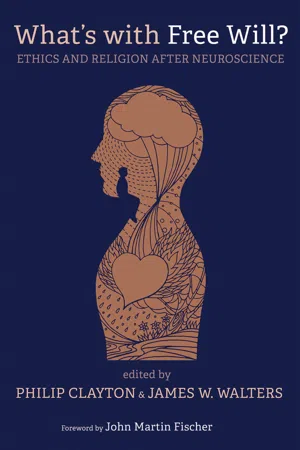![]()
Part One
Contemporary Neuroscience: A Challenge to Traditional Free Will
![]()
1
A Psychiatric Perspective on Free Will
A Tenuous Relationship
—Mark Ard
Psychiatry has always had a tenuous relationship with the concept of free will. The debate between determinism and a libertarian sense of autonomy often subsumes issues raised by mental illness. And nowhere is this more central than the question of suicide. As philosopher Albert Camus extols, “Judging whether life is or is not worth living amounts to answering the fundamental question of philosophy. All the rest . . . comes afterward.” However, psychiatry—like all medical specialties—is pragmatic. Therefore, to address the topic of free will from a psychiatric perspective, with specific application to suicidal patients, I shall start with how the specialty comes under the philosophy of medicine and deals with the broad questions of free will. From there, I will narrow down the question of suicide in three regards—practical, philosophical, and biopsychosocial. I will conclude by addressing the actual patient, with a focus on borderline personality disorder.
Struggling against Determinism
When we think of free will, the question really centers on moral responsibility. Do we have agency and accountability? Do we deserve praise or blame, punishment or reward? And what expectations are reasonable—if any—to put on patients? The default position of hard determinism, namely that every state and event is the direct and only possible result of states and events that precede, is at once fiercely rational and altogether unsatisfying. A concessionary position, that of compatibilism—the notion that free will can exist despite deterministic forces if there is a sense of freedom to act according to our motives—seems more reasonable from a pragmatic standpoint.
More interesting perhaps is the notion of psychic determinism, the application of the causality principle to unconsciousness. Freud’s view was that expressions of the mind, such as emotion and feelings, random thoughts, and even slips of the tongue, are the results of unconscious mental forces. A similarly rigid explanation of psychiatric phenomena is put forth by Nobel laureate and psychologist Eric Kandel. His framework is built around gene expression and patterns of neuronal connections; the mind is a heuristic. Interventions, both medication and therapy, at some level must affect gene expression, leading to cellular changes and alterations to neuronal circuitry.
When we attempt to conceptualize mental processes this way—either the outward expression of mostly unknowable and unalterable unconscious forces, or some Rube Goldberg machine determined by genes and formed by forces again mostly uncontrollable—there is a lingering feeling of incomprehensibility: why do we feel so free to choose? Whatever gains were made in adopting a compatibilist standpoint seem to revert back to a position of helplessness in the face of such overwhelming predetermined forces. This model of psychiatry would claim that decisions made by our parents when our genetic code was established, their relationship with us in our first few years, our struggle as young children to encode and synthesize a complex and abstract world, and the multitude of stressors throughout our lives all go into building the unique orientation of our brain—against, or at least without, our will and input. As we face any one specific decision, whatever feelings of freedom exist, our mental state at the moment of the decision is a result of mostly external forces.
The Problem of Defining the Problem
Psychiatric nosology—the system of classifying disorders—is not equipped to view the brain and illness in this way. The current system in the Diagnosis and Statistics Manual (DSM) sees illnesses as categorical groupings that have no fundamental neurobiological underpinning. For example, depression is defined as the experience of at least five of nine symptoms—depressed mood, loss of interest, weight change, sleep change, psychomotor changes, fatigue, feelings of worthlessness, poor concentration, and suicidality—for two weeks. The number and time are arbitrary but necessary to set the inclusivity of the category; however, they do not represent an identifiable neural structure or pathway. In fact, when symptoms are clustered to correlate more with real neural circuits, we start to see differences in treatment that we did not previously see. For instance, antidepressants as a class work with relative homogeneity to treat depression as described above, but if we look at core emotional problems, sleep disturbances, or atypical symptoms, then different antidepressants show efficacy on different clusters.
Even the DSM ha...
